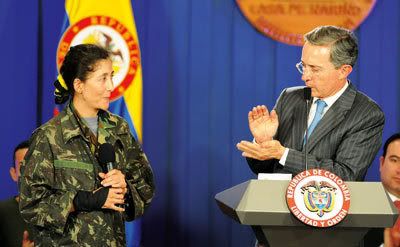An article for you from Vicente Aragon.
- AN ARTICLE FOR YOU, FROM ECONOMIST.COM -
Dear Caliman,
Vicente Aragon (vicentearagon@depapaya.com) wants you to see this article on Economist.com.
(Note: the sender's e-mail address above has not been verified.)
Subscribe to The Economist print edition, get great savings and FREE full access to Economist.com. Click here to subscribe:
http://www.economist.com/subscriptions/email
Alternatively subscribe to online only version by clicking on the link below and save 25%:
http://www.economist.com/subscriptions/offer.cfm?campaign=168-XLMT
DRIVING UNDER THE INFLUENCE
Jun 27th 2008
Why mobile phones and motoring don't mix
A DECADE ago, when mobile phones were the size of bricks, you could buy
a nifty microphone and loudspeaker gizmo that you clipped onto the
handset and stuffed into a car's cup-holder, plugging the hefty power
cord into the socket for the cigarette lighter.
It provided genuine hands-free calling while on the road. It also
allowed conference calls, and let everyone in the car participate fully
in the conversation.
Sure, you still had to punch in the numbers manually if you wanted to
dial out, but it was a dream for answering calls while driving.
Bluetooth killed such gadgets. With their short range, low power and
ample bandwidth, tiny Bluetooth radios broadcasting in the public
2.4-gigahertz band provided an ideal wireless hook-up for personal
devices.
Bluetooth allows a mobile phone in your briefcase to connect seamlessly
to the computer on your lap. The mouse and keyboard no longer need to
be plugged into the PC on the desk. Best of all, a Bluetooth headset
can clip over your ear and communicate with the mobile phone in your
pocket, providing clear hands-free calling.
Unfortunately, only a small minority have bothered to use such headsets
while driving. Your correspondent has bought several over the
years--and found all to be fiddly, uncomfortable and far from adequate.
Besides, they make you look like a dork.
Your correspondent swears drivers in southern California--never ones to
notice anyone else's presence nor give an inch if they do--have grown
more aggressive and dangerous as mobile phones have grown more popular.
Arnold Schwarzenegger, California's governor, agrees. As of July 1st,
California will join New York, New Jersey, Connecticut, Washington
state and Washington, DC in banning the use of handheld mobile phones
while driving.
Like other jurisdictions, California has also made it illegal for
drivers under 18 years of age to use any "mobile-service device" while
operating a motor vehicle. Unlike adults, juvenile motorists are
therefore forbidden from texting as well as phoning.
California will still let drivers use hands-free phones, and passengers
can continue to put phones to their ears. But get caught doing that
while driving and it will cost you $76 for the first offence and $190
for the second.
Will that actually stop Californian motorists? Difficult to say.
Washington, DC's ban only halved the number of motorists using mobiles
illegally. Drivers in New York have proved even bigger scofflaws.
The police in California have been collecting data on phone-related
crashes since 2001. While notoriously under-reported, mobile phones
have been implicated irrefutably in only 2.8% of fatal and injurious
car crashes. But accident figures from Canada and Australia suggest
that number is four times too low.
Another study, done by Virginia Tech for the National Highway Traffic
Safety Administration, found that 80% of crashes and 65% of
near-crashes involved some form of distraction within three seconds of
the crash. The most common distraction by far was using a mobile phone.
When prosecuted for reckless driving, defendants often claim they are
experienced multitaskers, and that using a phone while driving is
child's play. But driving is itself the most complex multitasking
activity most people ever undertake.
Continuously, reliably and accurately, motorists must compute closing
speeds, braking distances and proximity to other vehicles, all while
monitoring speed limits, traffic signals, street signs and changes in
road surface, while still keeping a wary eye open for pedestrians,
animals and children. The last thing any motorist needs is yet another
distraction.
Your correspondent has written before about the perils of "change
blindness" to drivers (see article[1]). This occurs when people fail to
notice sudden or gradual alterations in a complex scene.
Change blindness can stem from a momentary distraction--say, a blink of
an eye or a sudden splash of mud on the windscreen. That's all it takes
for a motorist to completely miss something that's just entered the
visual scene--such as a pedestrian stepping onto a crossing. How often
have you heard drivers claim they simply never saw the object they hit?
Something similar, called "inattentional blindness", happens when
motorists talk on a phone. Researchers at the University of Utah have
used driving simulators to show that people can become so involved in
conversation that they fail to see objects on the road.
So, are hands-free phones the answer? Maybe not. Ominously, a Swedish
study recently found that motorists' reaction times increased
disproportionately when they were talking on the phone--regardless of
whether they are using a handheld or hands-free phone. The only thing
that counted was the complexity of the conversation.
And you don't have to be the one doing all the talking for your
reaction times to lengthen dangerously. According to scientists at
Carnegie Mellon University, merely listening can reduce activity in the
region of the brain that processes spatial and visual information by as
much as 37%.
For emergencies, your correspondent has now bought a modern Bluetooth
replacement (a Motorola T305) for the clunky old speakerphone he had
ages ago, and dutifully clips it on his car's sun visor before heading
off.
But his rule now for making even hands-free calls is to pull over
whenever possible. Meanwhile, incoming calls can be picked up later
from voice mail. And texting while driving--bizarrely still legal for
adults under the new Californian law--has to be just about the dumbest
thing you can do.
-----
[1] http://www.economist.com/displayStory.cfm?story_ID=8833836
See this article with graphics and related items at http://www.economist.com/research/articlesBySubject/displayStory.cfm?story_id=11647516&subjectID=894408&fsrc=nwl
Go to http://www.economist.com for more global news, views and analysis from the Economist Group.
- ABOUT ECONOMIST.COM -
Economist.com is the online version of The Economist newspaper, an independent weekly international news and business publication offering clear reporting, commentary and analysis on world politics, business, finance, science & technology, culture, society and the arts.
Economist.com also offers exclusive content online, including additional articles throughout the week.
- SUBSCRIBE NOW AND SAVE 25% -
Click here: http://www.economist.com/subscriptions/offer.cfm?campaign=168-XLMT
Subscribe now with 25% off and receive full access to:
* all the articles published in The Economist newspaper
* the online archive - allowing you to search and retrieve over 33,000 articles published in The Economist since 1997
* The World in - The Economist's outlook on the year
* Business encyclopedia - allows you to find a definition and explanation for any business term
- ABOUT THIS E-MAIL -
This e-mail was sent to you by the person at the e-mail address listed
above through a link found on Economist.com. We will not send you any
future messages as a result of your being the recipient of this e-mail.
- COPYRIGHT -
This e-mail message and Economist articles linked from it are copyright
(c) 2008 The Economist Newspaper Group Limited. All rights reserved.
http://www.economist.com/help/copy_general.cfm
Economist.com privacy policy: http://www.economist.com/about/privacy.cfm
The Economist, Economist.com and CFO Europe are trading names of:
The Economist Newspaper Limited
Registered in England and Wales. No.236383
VAT no: GB 340 436 876
Registered office: 25 St James's Street, London, SW1A 1HG






